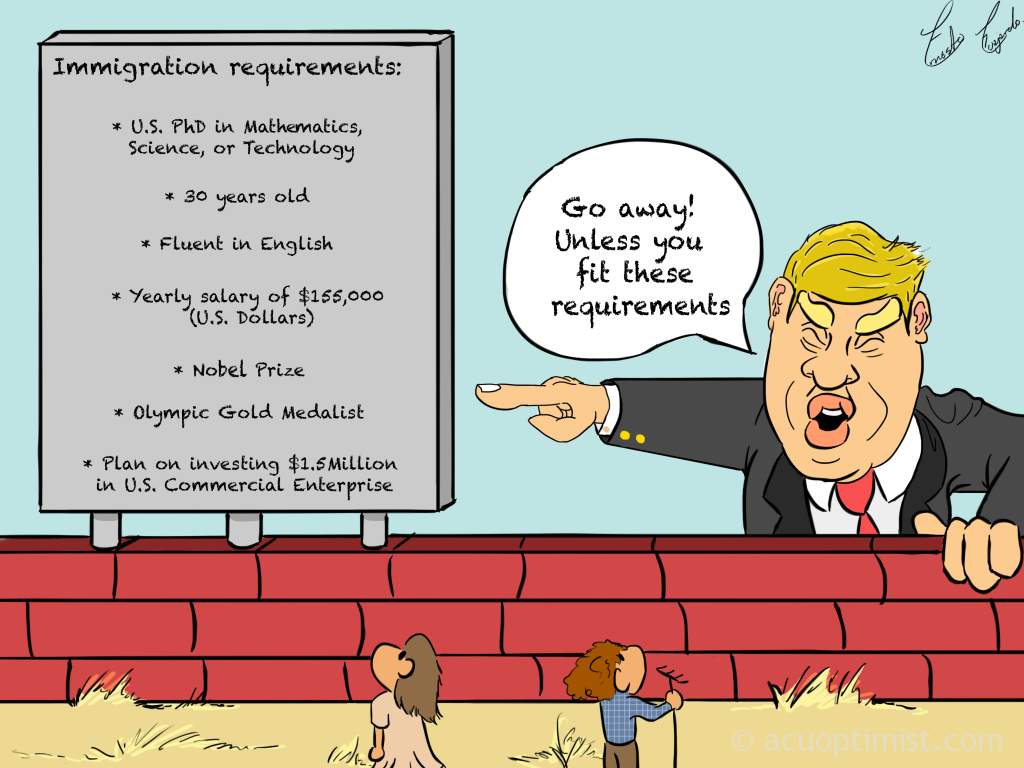Our nation was founded on immigrating for a better life, to escape a vicious ruler and to pursue freedom from inequality. But when it comes to immigration, our nation can’t seem to find practices that reflect these principles.
Our current practices are at odds with our history. America, in principle, stands for everything great in the world. We stand for freedom, we stand for equality and we stand for justice.
No matter which party you side with, most Americans can agree that people from other nations should have a reasonable way to come to the country legally. So then why does our immigration system seem so unreasonable?
Immigrants must find their way through a maze of regulation and bureaucracy. The first step to becoming a U.S. citizen is achieved through one of five ways: family, employment, investment, the “Diversity and Lottery” program or through “The Registry.” The path to permanent residence is dictated by how wealthy or experienced you are in a craft, and the only way for somebody without familial connection or money is the “Diversity and Lottery” program, which is threatened in today’s politics. This route takes three to five years for an immigrant to gain legal status.
Another hoop immigrants must jump through is the U.S. citizenship test, which only one in three native-born Americans can pass. We expect immigrants to know everything about our history, our language and our government, but we hardly know the information ourselves. The process to move from permanent resident to full citizen could take up to seven years.
Even legal citizens face the annoying red tape from the legal system when we get a driver’s license, file for a passport or register our vehicles. When our ancestors immigrated to America to seek a better life, and when our founding fathers declared independence from an oppressive government, there was no red-tape regulation to keep them out.
In the early days of America, George Washington once wrote in a letter: “The bosom of America is open to receive not only the opulent and respected stranger, but the oppressed and persecuted of all nations and religions whom we shall welcome to a participation of all our rights and privileges.”
This is the principle that America likes to boast about, but the life for immigrants in today’s society does not reflect that same mindset. America may be the greatest country in the world, but we must remain conscious of our history and where we came from in order to make sure the American Dream stays alive and well.

